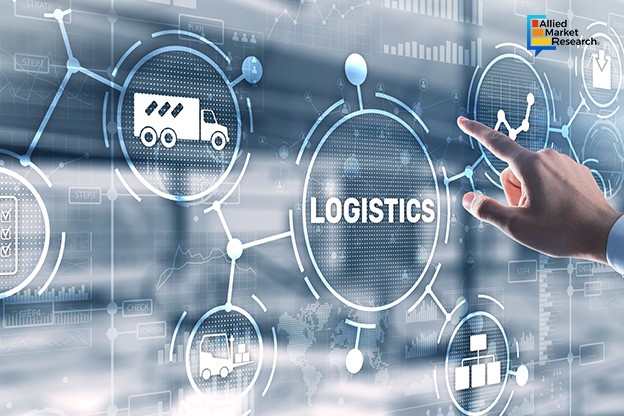How Automation and Real-Time Data Are Reshaping Logistics Business Outsourcing

12 Jun
2024
Highlights
- Introduction
- Role of third-party logistics in boosting the growth of businesses
- Technological advancements in the industry
Logistics outsourcing involves a company hiring a third-party provider to manage various aspects of its supply chain operations. These external providers, known as third-party logistics (3PL) companies, monitor tasks such as inventory control, warehousing, shipping, fulfillment services, freight forwarding, and reverse logistics.
The logistics industry includes Fourth-Party Logistics (4PL), Third-Party Logistics (3PL), reverse logistics, green logistics, inbound logistics, outbound logistics, military logistics, and other logistics services. These processes ensure efficient and effective transport and storage of goods and services. Currently, logistics services are applied in various areas, such as supply chain management, warehousing, inbound and outbound transport, material handling, packaging, and inventory management.
Factors such as the growth of the e-commerce industry, an increase in reverse logistics operations, and a rise in trade-related agreements fuel the expansion of the logistics business outsourcing industry. Additionally, the growing adoption of IoT based devices and the rise of tech-driven logistics services are also driving industry growth. The industry is estimated to display the fastest CAGR of 5.7% by 2032.
Contribution of third-party logistics to business growth
Outsourcing logistics offers numerous benefits to businesses aiming to optimize their operations and concentrate on their core strengths. A significant advantage is the potential for cost savings by delegating tasks like warehousing, inventory management, and transportation, to external experts. By utilizing the specialized knowledge of third-party logistics providers, companies enhance the efficiency of their supply chain processes and lower overhead expenses.
Increased efficiency and flexibility are also significant benefits of outsourcing logistics. External partners possess the resources and scalability to adapt to changing market demands, ensuring seamless operations during peak seasons or unexpected demand fluctuations. This enhanced agility enables businesses to remain competitive and responsive in today's fast-paced business environment.
Another important reason for companies to consider outsourcing logistics is to gain access to specialized expertise. Collaborating with professionals who specialize in managing complex supply chains can offer access to industry best practices, strategic insights, and advanced technology, that are not available in-house.
Moreover, enhanced customer satisfaction is a notable advantage of efficient logistics management. Precise order fulfillment, clear communication, and timely deliveries throughout the shipping process all contribute to positive customer experiences. This, in turn, fosters increased loyalty and repeat business for companies that prioritize exceptional service through outsourced logistics solutions.
Transforming global logistics outsourcing with real-time visibility and data analytics
Digital transformation is reshaping logistics by providing improved visibility into the supply chain. Through data analysis, IoT sensors, and real-time tracking, businesses monitor goods throughout every step of the supply chain process. This heightened visibility reduces uncertainties, empowering companies to anticipate and address disruptions quickly. By leveraging comprehensive data insights, businesses streamline operations, make better-informed decisions, and enhance inventory management.
Furthermore, transparency across the supply chain establishes trust among stakeholders and boosts collaboration and efficiency. Digital tools simplify communication and coordination among manufacturers, suppliers, and distributors, guaranteeing seamless workflows.
Optimizing the efficiency of logistics outsourcing with automation
The integration of digital transformation in logistics leads to significant advancements in automating processes. This automation optimizes different aspects of the supply chain, diminishing the need for manual involvement and improving operational effectiveness. Technologies such as AI-based systems, machine learning algorithms, and robotics handle routine tasks like inventory management, warehouse operations, and order processing.
In addition to speeding up processes, this also reduces errors and boosts accuracy. Automation also facilitates the deployment of autonomous vehicles and drones for efficient transportation and last-mile delivery. Furthermore, the adoption of automated systems helps cut costs by lowering labor expenses and optimizing resource usage. Through the adoption of automation, logistics businesses redirect human resources to more strategic roles that necessitate well-informed decision-making. This fuels innovation and delivers a competitive advantage in the industry.
To sum up, the integration of digital technologies and automation is revolutionizing logistics outsourcing by offering businesses greater efficiency and adaptability. Companies can strengthen their supply chain operations, improve customer experiences, and dominate the industry by using enhanced visibility, data analytics, and streamlined processes. However, technological advancements such as automation and digitalization are anticipated to open new avenues for logistics business outsourcing in upcoming years.
To enter a new era of revolution with investment opportunities, contact our experts today!

Koyel Ghosh
Author’s Bio- Koyel Ghosh is a blogger with a strong passion and enjoys writing in miscellaneous domains, as she believes it lets her explore a wide variety of niches. She has an innate interest in creativity and enjoys experimenting with different writing styles. A writer who never stops imagining, she has been serving the corporate industry for the last five years.
Avenue: Entire Library membership of Allied Market Research Reports at your disposal
- Avenue is an innovative subscription-based online report database.
- Avail an online access to the entire library of syndicated reports on more than 2,000 niche industries and company profiles on more than 12,000 firms across 11 domains.
- A cost-effective model tailored for entrepreneurs, investors, and students & researchers at universities.
- Request customizations, suggest new reports, and avail analyst support as per your requirements.
- Get an access to the library of reports at any time from any device and anywhere.
Related Post
-
How are Submarine Cables Transforming Global Connectivity with Enhanced User Experience?
-
Endoscopy Procedures: Transformations in Techniques and Applications
-
AI-Powered Video Analytics: How the Product Actually Works for enterprises
-
Painting Robots: Transforming Precision Coating and Creative Applications
-
Innovations in Pharmacovigilance Systems Advancing Patient Safety
-
Understanding Edge Security: Keeping Data Safe Near the Source
-
Exploring the Use and Advancements of 3D Laser Scanners in Professional Applications
-
Reinforcing Industrial Controls with Smarter Tools and Training








